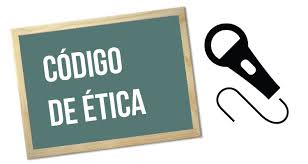.gif) PY4SM / PY2DD / ZW4SM
PY4SM / PY2DD / ZW4SM.gif)
.gif) PY4SM / PY2DD / ZW4SM
PY4SM / PY2DD / ZW4SM.gif)
![]()
(Reproduction of this text is authorized provided the holder is preserved and mentioned - Copyright : Marcus Martins - PY4SM / PY2DD)
 Operating
ethical principles are a basis for amateur radio, fraternal and constructive
and aimed at providing harmony and enthusiasm in the practice of
communications between the various peoples of the world. Remember that ham
radio is a continuous learning process. We learn through instruction and
comments below provide basic principles for the conscious use of our
frequencies. To ensure the quality of the Amateur Service, seek as far as
possible, use equipment certified and approved by the Ministry of
Communications. Similarly, the Radiant system (set consisting of antenna,
cable, connectors and insulators) is fundamental for the good performance of
the season, avoiding interference with other services. In case of doubt
regarding installation, consult a qualified technician or amateur colleague.
Amateurism is the vocational activity, spontaneous and free, prior and
complements professions, satisfying psychological conditions and exerting
influence on social relations. Any human activity can be amateur and / or
professional. The amateur, however, precedes and complements the profession
who regularly uses the progress it generates. Research is always the result
of spontaneous amateur work.
Operating
ethical principles are a basis for amateur radio, fraternal and constructive
and aimed at providing harmony and enthusiasm in the practice of
communications between the various peoples of the world. Remember that ham
radio is a continuous learning process. We learn through instruction and
comments below provide basic principles for the conscious use of our
frequencies. To ensure the quality of the Amateur Service, seek as far as
possible, use equipment certified and approved by the Ministry of
Communications. Similarly, the Radiant system (set consisting of antenna,
cable, connectors and insulators) is fundamental for the good performance of
the season, avoiding interference with other services. In case of doubt
regarding installation, consult a qualified technician or amateur colleague.
Amateurism is the vocational activity, spontaneous and free, prior and
complements professions, satisfying psychological conditions and exerting
influence on social relations. Any human activity can be amateur and / or
professional. The amateur, however, precedes and complements the profession
who regularly uses the progress it generates. Research is always the result
of spontaneous amateur work.
When paid, the researcher produces beyond what is required: yet professional, research has something amateurish. Mental health and expansion potential latent in the individual are provided by amateurism especially the professional expertise and the specific tasks affect the industry. Only the machine can pay a single invariably task. The psychological void left by the division of labor needs to be filled.
Approaching leaders and subordinates of all professions, amateurism exercises invaluable influence on social relations. When occupations are unknown beyond their classes and they do not have a point of contact, appear misunderstandings, antagonisms, fights, ill will, widespread difficulties. Without understanding, goodwill is unconscious, feigned, mere exhibitionism. It's the amateur a social necessity, constitutes the factor of research and complementation, mental hygiene instrument and psychological expansion, vehicle human relations, reason for clarification and awareness for goodwill.
Involving a huge field of research, bringing people of all activities, connecting cities, states, countries and continents radio generates a super amateur on three important aspects: Research, Telecommunications and Service. Bringing together the various branches of human knowledge, and the Radio electricity as most prominent and essential in the new search techniques; Not only by the reciprocal contacts of its practitioners, but between them and the people they provide invaluable services, amateur radio causes an infinite number of human relations, being an open and inclusive brotherhood.
Our "sport" should be tapped. Your best influences have been wasted and forgotten part of their value. A decreasing succession of contacts, we live today more at home, on the street, in the neighborhood, the city, the state, and then live in the country. Unitary national life, can exist only by self-awareness and individual participation of its participants, otherwise it is nothing more than a mere fiction. Centralization waste skills and dispersed efforts, reducing results, allowing anomalous distributions of progress. This progress would be easier, more extensive and better distributed, when he left to each municipality. Only amateur radio, though unconscious, exert dominant role municipalist, taking the voice of a city across the country, spreading their activities, showing their values, reminding their participation in national life, attracting sympathies, promoting tourism, making numerous different chain links and spread around the world... A latent force that should not be missed! The amateur can constitute the main national mobilization tool.
Considering that:
· The tracks initially designed amateur radio, were greatly reduced;
· Some of
these bands are used for other services;
· The
continued increase in the number of hams;
· Ham
radio is now a certainty and even a need to talk, unlike his early days when
it was just an attempt.
The contacts are impossible without
some operating standards. The use of more than one QSO to the same frequency,
clutter traffic and causes unexpected and unnecessary interference. Do not
just ban the duplex on short-wave bands; it is necessary that one channel is
used for QSO'S. Misuse of the tracks is dominant fact of his jam. QSOs from
nearby stations should not be performed in bands with propagation over long
distances. The size of the antenna is no cause for the abandonment of the
tracks of 160 and 80 meters. Even the frame antenna to these tracks help to
achieve reasonable distances as well.
The extensive exchange is inadvisable:
· It is always longer than it appears.
· The
forgetfulness and the lack of clarity require repeated much.
· All end up spending more time: the MEETS UP WITH HAM ACCOMPLISHMENTS ACHIEVED, DO NOT OVER TIME IN PASSING OPERATING. This, when in vain, is hassle factor.
· TECHNIQUE is the main goal of any amateur radio activity, there is even one who understands the only one. However, the indulgence of GREAT POWER has replaced improvement. Not allowing flexibility for experiments requiring higher operating care, disturbing the tracks with their misfits, easily interfering average transmissions and small, uneconomical, inaccessible to many, GREAT POWER is inconvenient to amateur radio.
Often a novice amateur or even a
veteran, can develop bad habits and inadequate amateur radio operating
procedures and only for lack knowledge of the correct procedures. The comments
below provide basic principles for responsible use of our frequencies:
• Before making a general call CQ,
make sure that the frequency is free;
• When you challenge a general call tune your equipment at a frequency just above or just below not to interfere with the called or communicated for the reception. The only exception to this rule occurs in SPLIT operation cases previously announced. Also, keep in mind that our tracks are increasingly becoming smaller on the growing number of amateurs.
The coordinator of a network or round is responsible for driving the same in an orderly and courteous manner, so as not to disturb other communications. It is noteworthy that no network or individual operator has the exclusive right to a specific frequency at certain times, unless you are conducting an emergency traffic. The use of a frequency belongs to those who are taking at the moment, do not forget that the amateur radio service is, above all, a shared service.
So do not interrupt a conversation if you want to call to another station, or you want to join the group, or round. Wait at least until the exchange station that is with the word end, and only then announce your call sign, always after the season who is speaking off the PTT or VOX. Do not use the UPS as this should only be used in cases of proven emergency. Identify with good afternoon or good morning, etc., is not an acceptable procedure as always causes a useless return that could be avoided; inevitably someone will ask "Who called?" and so on.

You do not need to identify to each passage exchange, do it every 5 minutes at most complete and correctly. These are internationally accepted rules. If you find a station reached the frequency and do not know who you are, it is a good operating procedure and courtesy, give him your call sign, name and location of where you are operating. The station that the order is to use the frequency is the only station that will meet those who called and identified himself. Even if the station that called opportunity be your best friend, if it is not your turn to speak, does not enter the frequency, do not greet and do not drive him off, wait for your turn. Who asks opportunity will be attended by fellow "time" and after identification, return the floor to anyone who has given you so that it can make its exchange rate - it follows the normal sequence, including the colleague who asked opportunity. It is a sign of poor operating practice, let the word WHO RIGHT because normally generates the following confusion. It is extremely unpleasant, developing bilateral conversation in a round with the other being apart.
Never attempt to transmit on another station... First because it is illegal and hurts everyone because none of the stations will be understood. If you think you're modulating along with some other station, release the PTT or VOX and listen to make sure. In one round, if a station is assigned a frequency to make a call and the call station is present, the conversation between them should be very brief, or both must change the frequency, unless the others do not make use restrictions frequency.
Use proper phraseology and elegant
phrases in conversation, avoiding pimp verbiage, or words of dubious and
improper sense in the bands of hams, so that will hurt the susceptibility of
those who are listening. Remember that its transmission is being heard by many
radio listeners, including non-amateurs, with monitors and scanners band. What
you say in the range will depend on the concept that each listener will make
the Brazilian amateur. Do not interrupt those who are talking, unless you have
something important to add and remember to stop in radio is more grotesque
than in person. A BREAK word is strictly reserved for emergency traffic and
emergency, as a rule, directly involves the safety of life.
Not extending beyond negative feelings for the track when authority measures governing body etc., are not to your liking. When you want to criticize, do it in writing, accompanied by a viable suggestion. Avoid queuing with those who, for unspeakable reasons, seek to denigrate and demean everything. Do not operate at frequencies that you are not allowed - is illegal. Make your communications are always friendly and understanding. Has good will and help the less experienced, making it elegantly, disinterested, patient and tolerant.
Keep up-to-date with the amateur radio legislation, always having perfect knowledge of the terms in which it was awarded the privilege of being amateur. Do not use the tracks for propaganda commercial or political activities, refraining from acts that could characterize commercialism of amateur radio - besides being illegal, their behavior is being observed by his colleagues. Keep complete secrecy as to communications eventually heard in other tracks than the amateur. Avoid criticizing other modes of transmission because they do not engage in this or that mode. Each amateur has the right to pursue their goals legally covered by its license, but has a duty to avoid inconvenience or unpleasantness that may cause to others.
If there is a narrow band segment that is used for international communications, local chats should be made out of that DX segment. The daily local chats should be preferred to the use of low bands (40 to 80 meters) or use the VHF or UHF. Respect segments of bands for the various modalities and operational practices. There is enough space for a harmonious and peaceful coexistence. Usually communicated over long distances are preferred over local communications. If you need a longer statement, it will be demonstrating camaraderie and consideration of other colleagues seek a frequency outside the DX segment. QRM zero is something that can not want in amateur radio. There will always be either this or that QRM QSO due to congestion of the band, which, by the way, is not a reason for discharging the frequency expressions and sour words. If you always want to free communications interference, ham radio may not be the most suitable option.

If you notice that a colleague started the challenge CQ expect the contestation. As the work of the fellow who called CQ, responding or not to the defense, then it will be up to you to make your call. If you have a powerful station, collaborate so that everyone has a turn. It will be easy for you to wait for the end of the contact, and then hunt down the figurine, colleagues will respect you for consideration. It is extremely unpleasant to hear that this or that colleague prevented or hindered or another with QRM or signs of his season. If you operate with high power, make sure that the side of his QRG is unoccupied. It is a demonstration of extreme rudeness, sweep the QRG in power base, in addition, the high power causes interference of several Hz above or below the frequency that you are taking.
Eager to "bill a QSO" avoid unduly run down the frequency making this up before the end of the contact previously established. Similarly in the DX and PILE -UP respects the natural order of QSO's, an exception and in very special cases this practice shall be admissible only if the favored season for a station operating QRP. CW operation use the recommended international signs, particularly at the end of each exchange, to prevent impatient tapping could harm the QSO.
When a station is called a directed, adding the geographical region to which you want contact (e.g. CQ Asia, Europe CQ, CQ Brazil, etc.), only if the answer to it is that the ham in the region or country indicated by season, otherwise you will only slow because it needs that location for its operation scheme. Always know that you avoid contact with stations that are habitual violators of the basic precepts of operational ethics. It is considered that a statement is true when the two stations have exchanged indicative and reports correctly.
Be respectful of the frequencies of DX expeditions. Avoid entering your QRG at odds with good standards of operation and amateur radio ethics. The operators of these expeditions often work in difficult conditions and make real juggling to meet thousands of calls from around the world, so that each of us can bill another important station. Especially in these cases, be brief, precise and concise in contacts and your call sign, report and nothing else.
In operations in CW never transmit up speed with which it was disputed. Do not make endless CQ, make short calls. Most CW operators make QSY to hear endless CQ's. Established contact, cite the indicative one or at most twice. Only repeat words and important data. Do not pass on QSZ (repeat all the words) respecting the spaces without amending the letters. Never forget that the rhythm is more important than speed. Remember, our tracks are for amateurs, so there is no speed contest, so do not bother to pass quickly. Use a moderate pace, though, as perfect as possible. A telegraph is also judged by its ability to receive and not only by the speed of transmission. The CW high-speed operation can and should be used, since both stations are able to do it. When you hear a colleague CW issue the letters CL end of QSO, do not insist - is lack of courtesy, who has already expressed its intention to QRT.
Never make interrogation when contact a special call, the only appropriate question is PSE MANAGER? Or QSL INFO? To know through whom we should send the QSL. In the case of a pile-up operation that should be avoided, because the DX station always passes the manager of the respective data. A practice that should be adopted is carefully listen before calling the station - in a pile- up only offer your call sign after learning who they are. NEVER ask PSE UR CALL.
If the DX station is working in SPLIT and you cannot afford to do it, forget the season... Avoid getting disturbing others without any chance of being met.
Before accessing a repeater, listen to it to familiarize yourself with its operation, offering opportunity ask your call sign and location where broadcasts. Do not activate the repeater unnecessarily. Make a short pause between transmissions, in order to enable other colleagues and perhaps an emergency, they can be present. Keep your shortest exchange possible, to prevent the timer activation of the repeater. Use Simplex reported whenever possible, avoiding unnecessary use repeaters. Always use the minimum power required; in addition to not overload your radio prevents trigger other more distant repeaters that can use the same frequency.
There are some repeaters that are
equipped with Auto patch system ( connection to the telephone network ),
however, abuses can lead to loss of this facility.

Although they are installed on high towers, buildings and mountains, repeaters do not fall from the sky. The equipment, antennas, cables and power are maintained with considerable costs and usually a selfless group is responsible. Without financial support existing repeaters cannot be maintained and may be disabled, so it is worth to note that ethical principles are the foundation of a healthy, fraternal and constructive amateur and aim to provide harmony and human enthusiasm, still remembering that ham radio is a permanent exercise tolerance and learning; example replaces the best oratory.
Radio amateurs should conduct themselves in bands with full respect to legal rules, especially those governing the Amateur Service and our obligations to the other colleagues, are not limited to regulatory and legal provisions. More important is the use of common sense and comity in the shared use of frequencies that we are destined.
Properly use the Q code and the international phonetic code. Please note: even if the legislation provide it for use in places communicated names and electronic parts and name of countries, try not to do it because the habit will lead you to make mistakes at the time of an international contact. Even if you hear a colleague broadcasting in Q code differently legislation, do not repeat the same mistake just because everyone speaks wrong. Do not correct because it would be rude; but to grant it to FRISE word and the correct way (the same goes for the phonetic code). The codes are necessary because the frequency can be static and interference, and when you pronounce a name, for example: MILTON, the other operator can understand: NILTON. So you should "codify" the Milton name, like this: Mike, India, Lima, Tango, Oscar, and November. Therefore, use the phonetic code that the entire planet will understand, even if the radio operator is in another country. Remember, this code is international and known to all amateurs, airmen, soldiers, sailors and police, who use it widely.
Whenever you mention your call sign, do it completely, respecting the law.
Radio amateurs
should keep records of their communications on time.
Practice supreme courtesy to the first contact with another station, either the country or abroad, ALWAYS send and / or "pay" QSL card.

What is a DX? The radio communication from its beginnings, launched as a major challenge, the gradual increase in distances of communications, both in the amateur area, as the area of professional activity, always aiming to achieve greater distances with maximum economic rationality possible. It can be said in general terms that "DX" in amateur radio is the constant demand in the long distance communication, writing with other countries or farthest points and exhibit greater difficulty in making the contact. So that there was an organizing parameter for the pursuit of these contacts the wide distance, it was agreed internationally a list of countries published by the ARRL-American Radio Relay League, as a formal parameter localities for the purpose of "DX" They would be considered as countries. This list is constantly adapted to the technical changes, political and social, so we always have this updated list of valid countries for the "DX". Thus, from time to time, they are removed and added to the official list, new countries, as well as additions and withdrawals prefix codes of the various countries listed.
IMPORTANT: The hams must conduct themselves in bands with full respect to legal rules, especially those governing the Amateur Service. Our obligations to the other fellow radio amateurs are not limited to regulatory provisions. More important is the use of common sense and of comity, to share frequencies with which we are destined. In communications in general and especially in international communications , so please use the guidelines contained in this material, thus contributing to the formation of a good image of the Brazilian Amateur Radio . Therefore: RESPECT TO BE RESPECTED!
- Be fair!
- Act correctly!
- Do not abuse the codes!
- Do not interrupt other communications unnecessarily!
- Do not mess with the reported emergencies!
- Be supportive!
After all, so should be the Amateur.
G
L O S S A R Y
CW = Telegraphy.
CQ = General
call.
DX =
Communication over long distances.
SPLIT = Use
different frequencies for transmission and reception.
ROUND =
Announcement together.
BREAK =
Interruption.
PTT = Push to
talk (microphone).
VOX = drive
system of the voice transmission.
HT = HANDLE TALK
(handheld transmitter) .
UHF = Ultra High
Frequency.
VHF = Very High
frequency.
PILE -UP = Step
in jump.
MANAGER =
Coordinator.
PSE MANAGER
(MANAGER PLEASE) = Please inform the coordinator.
QRG = Frequency.
QSL INFO (QSL
INFORMATION) = Information for addressing the QSL.
(Reproduction of this text is authorized provided the holder is preserved and mentioned - Copyright : Marcus Martins - PY4SM / PY2DD)
![]()
![]()